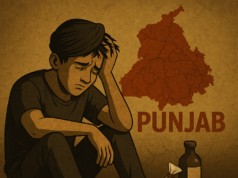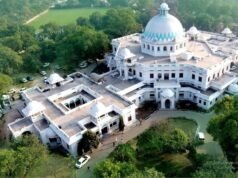It was a quiet morning in Majitha, a small town in Amritsar district, when the news broke like a thunderclap: Bikram Singh Majithia had been arrested.
For many, it was just another political headline. But for families across Punjab who have buried sons, nursed addicted brothers, and watched dreams dissolve into syringes and pills, it was far more; it was the sound of long-awaited accountability knocking on the door of power.
The Untouchable Finally Touched
For over a decade, Majithia, a senior Akali Dal leader, former cabinet minister, and brother-in-law of Sukhbir Badal, stood as one of Punjab’s most powerful and polarizing figures. His name had echoed in courtrooms and newsrooms ever since convicted drug smugglers, including dismissed DSP Jagdish Bhola, named him as a key figure in the state’s booming narcotics network.
But nothing happened.
Not during the SAD-BJP government. Not when SAD leaders gave lofty speeches about “saving the youth.” The system remained frozen, chained by political power and fear.
Now, with the Punjab Vigilance Bureau’s arrest of Majithia in a ₹540 crore drug-linked money laundering case, the silence has finally cracked.
The Reaction: Political Loyalty Over People’s Pain
And how did the Shiromani Akali Dal respond?
Did they acknowledge the gravity of the charges?
Did they express even a moment of solidarity with the victims of Punjab’s drug epidemic?
No.
Instead, they launched street protests. Called the arrest “revenge politics.” Accused the AAP-led government of “dictatorship.” They demanded Majithia’s immediate release, as if he were a freedom fighter, not a man under serious investigation for enabling one of Punjab’s darkest eras.
Where Was This Rage When Punjab Was Dying?
Between 2007 and 2017, during the SAD-BJP rule, the drug crisis reached horrifying levels. Villages became graveyards of lost potential. Entire families fell into despair. According to multiple studies, up to 76% of youth in border districts were affected by substance abuse.
And where was the Akali Dal during this time?
Their top leaders dismissed the crisis as an “opposition conspiracy.”
Majithia, despite repeated allegations and growing public anger, remained a cabinet minister and star campaigner.
Even when an FIR was finally filed in 2021 after years of resistance, the SAD cried foul, rather than cooperating with the legal process.
The Hypocrisy Is Unmistakable
Let’s call it what it is: political hypocrisy at its worst.
The same party that once refused to admit there was a drug problem now cries injustice when one of its own is held accountable.
The same leaders who allowed Punjab’s youth to fall to addiction now ask for sympathy for a man linked to that very destruction.
When justice finally starts to move forward, the Akali Dal resists—not because of injustice, but because of inconvenience, because it threatens the myth they built: that their hands are clean.
The People Are Watching; and Waking Up
But Punjab is not asleep anymore.
The arrest of Majithia has become more than a legal act—it has become a mirror held up to the faces of the powerful. A reminder that no surname, no alliance, and no speech can bury the truth forever.
Across the state, families who suffered in silence are now speaking. Social media is filled with voices saying, “Finally.” Civil society, religious leaders, and victims’ families are demanding a full and fearless investigation—not just of Majithia, but of everyone who allowed the drug trade to flourish.
This Is Not the End; It’s a Beginning
Majithia’s arrest must not be reduced to a political spectacle.
It must be a turning point—for Punjab’s politics, for its justice system, and for every party that has ever placed power above the people.
Let the Akali Dal protest all they want. Let them shout in the streets. But no one is above the law, and certainly not someone accused of profiting from the poison that ruined a generation.
If the Akali Dal truly wants redemption, it must begin by looking inward. By acknowledging its failures. By apologizing to the people. And by stepping aside while justice does what it was long denied the chance to do.
Until then, their protests ring hollow, just like their promises once did.









